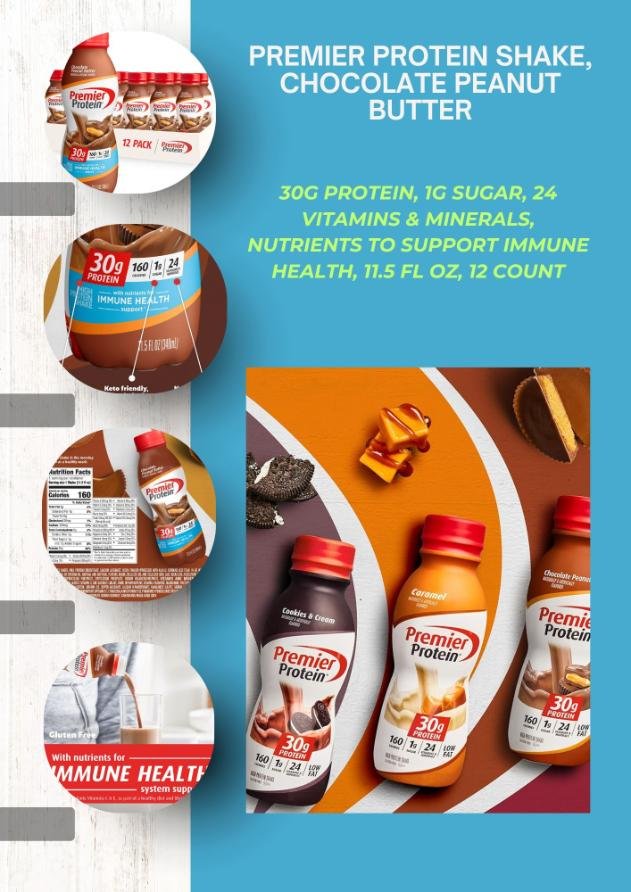Nourishment
Starting a diet may be both thrilling and difficult, particularly if one’s expected results seem far-off. You are most definitely not alone if you have been assiduously following one’s weight reduction program but are not experiencing the expected results.
Many find themselves in this situation not because of lack of effort but rather from certain typical nourishment mistakes that can undermine even the most committed efforts. From the misleading character of calorie counting to the underappreciated relevance of meal frequency, this essay clarifies these traps and offers practical advice to enable you to course-correct. Knowing and fixing these often disregarded errors can help you to make one’s dieting trip more efficient and fulfilling and open the path to long-term health and well-being.
Dissatisfaction with diet outcomes is a common phenomenon. Seldom do people start a weight reduction path just to discover that their efforts are not yielding the anticipated results. It’s not about lack of willpower; often, it’s about avoiding typical mistakes that may quickly derail one’s progress. Let’s explore some of the main nourishment errors you might be making and how to fix them so that one’s road to a better living is both successful and fun.
The Misleading Role of Calorie Counting
Calorie counting is a common tool for managing weight, but it can be deceptive if not addressed carefully. Without considering the quality and source of those calories, you may not be certain about the quantity of the calories you consume. For example, fresh fruit and a sweet snack of equal quantities in calories are different in nutrients. Highlighting nutrient-dense meals, that nourish the body and support one’s overall health objective, would be an excellent choice.
On the other hand, giving full attention to calorie tracking may not be a good idea. Because it could lead to undesirable eating behaviors such as depriving oneself of vital nutrients or losing sight of portion control.
Consuming a balanced meal is ideal to boost one’s nutrition. A balanced meal includes a blend of proteins, healthy fats, and complex carbs. Nourishment brands like “NutriBoost” provide a selection of components to help you design balanced meals without tracking every calorie.
Skipping Meals Have Diverse Effects on Metabolism
Skipping meals is a popular method to decrease calories. But it might backfire by slowing down one’s metabolism. The human body requires regular fuel to function successfully, and when he or she misses meals, it might enter a conservation mode, storing fat instead of burning it. This might impede one’s weight reduction attempts by increasing hunger, which might make one more prone to overeat later in the day.
Consuming balanced meals regularly may keep one’s metabolism active and one’s energy levels consistent. Focusing on portion management and nutrient-rich foods that give prolonged energy could be a better alternative to skipping meals. Consider using meal-planning nourishment programs like “MealPrepPal” to regularly fuel one’s body with the proper foods at the right times. Having a constant eating pattern assists one’s metabolism and helps in attaining one’s weight control objectives.
Consuming More of Processed Food and Less of Vegetables or Misusing Them
A common mistake is overconsuming processed foods. Those foods often usually contain high-added sugars, unhealthy fats, and artificial ingredients, while lacking essential nutrients.

Zena Organic Super Greens Powder, 70+ Superfoods Drink Mix, 0 Sugar, 3G Fiber, Fruits, Veggies, Spirulina, Chlorella, Antioxidants, Pre & Probiotics, Digestive Enzymes, Mixed Berry Flavor, 30 Packets
Another mistake is avoiding or not eating enough vegetables. Fiber contents of vegetables contribute to satiety, promote healthy digestion, nourish intestinal flora, and reduce sugar absorption. Vegetables should be a regular part of every meal due to their fiber content.
Avoiding whole foods like fruits, vegetables, lean proteins, whole grains, and healthy fats is a common habit of many people. But these provide vital nutrients and support overall health. Legumes are sources of protein and carbohydrates and are often misused. They should be used as substitutes for high-protein foods like meat, fish, eggs, or cheese. Potatoes, on the other hand, are carbohydrates and should be considered an alternative to bread or pasta.
The Wrong Balance of Macronutrients Is an Obstacle to Optimal Health
One can be cutting out whole food categories or not ingesting enough protein, carbs, or fats. Hence results in an imbalance of macronutrients. Macronutrients serve a critical part in one’s body’s functioning. Proteins are required for muscle repair and growth. Carbohydrates give the energy needed for everyday tasks, and healthy fats are vital for hormone manufacturing.
To attain the appropriate balance, one can try using meal-planning programs like “NutriBalance Pro.” They give individualized suggestions based on one’s nutritional needs. By ensuring that one’s meals are both varied and balanced, one can maintain energy levels and enhance general well-being.

A diet isn’t simply about eating less—it’s about eating well.
Drinking Not Enough Water Can Sabotage the Weight Management Plan
One should not forget the basic ingredient of a healthy diet: hydration. Digestion, vitamin absorption, and even hunger management are principal functions of water. Drinking adequate water will help avoid needless eating and assist one’s metabolism.

BARE PERFORMANCE NUTRITION BPN Electrolytes Hydration Drink Mix | Sugar Free Electrolyte Powder | 500mg Sodium per Serving | Naturally Sweetened | Lemon Lime, 50 Servings
Incorporating a water program may be a game-changer. Start one’s day with a glass of water and strive to drink steadily throughout the day. Well-hydrated body not only promotes weight loss but also increases one’s skin health, cognitive performance, and happiness.
By fixing these typical nourishment faults, one may improve his or her diet and acquire the positive effects one has been striving for. Remember, effective dieting is a process that incorporates strategic planning, balanced food, and proper water.
Conclusion
Navigating the route to effective weight control isn’t simply about sheer willpower or counting calories—it’s about detecting and correcting frequent nourishment blunders that might derail one’s progress. By concentrating on the quality of your calories, having a balanced intake of macronutrients, avoiding the pitfalls of meal-skipping, and focusing on water, you may layout a more sustainable and successful dietary plan. Remember, a good diet includes cognizant planning, a balanced approach to eating, and being well-hydrated. By embracing these lifestyle changes, you’ll not only boost your weight reduction journey but also support your whole health and well-being, setting up the route for long-term success.
FAQs
What are the regular nourishment faults that can be injuring my diet?
Common nourishment errors include misleading calorie numbers without considering the quality of the calories, skipping meals which can decrease metabolism, and an inappropriate balance of macronutrients. These can hinder weight loss attempts if not addressed.
How can I identify whether my existing diet plan is ineffective?
If you are not getting the desired results despite rigorous efforts, it may be due to frequent blunders such as relying primarily on calorie tracking, skipping meals, or an uneven intake of macronutrients. Reevaluating these factors can help uncover possibilities for improvement.
Are there certain eating habits that might be affecting my weight reduction efforts?
Yes, behaviors like skipping meals, over-reliance on calorie counts without nutritional assessment, and poor macronutrient balance can hamper weight reduction. Ensuring frequent, balanced meals and concentrating on nutrient-dense foods will help one’s aims.
What should I consider modifying in my eating to obtain better results?
To get greater results, prioritize nutrient-dense foods, retain a balanced intake of macronutrients, avoid missing meals, and stay well-hydrated. These improvements will assist optimize one’s metabolism and promote sustained weight control.
How do I guarantee my dietary plan complies with my health goals?
Ensure one’s dietary plan contains balanced macronutrients, typical meal frequency, and sufficient hydration. Using tools like meal-planning services may give individualized guidance to match one’s diet with one’s health objectives and enhance overall well-being.













